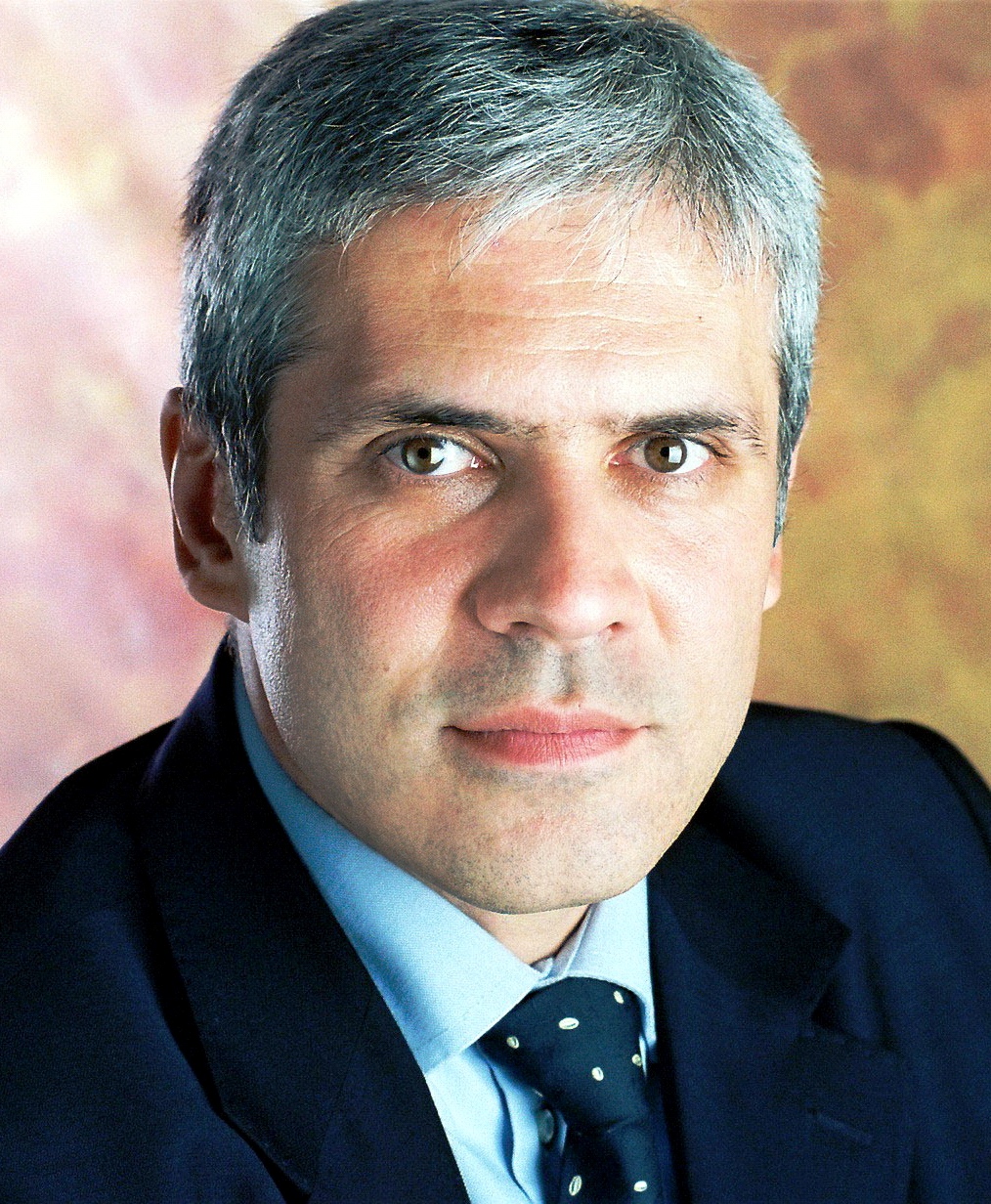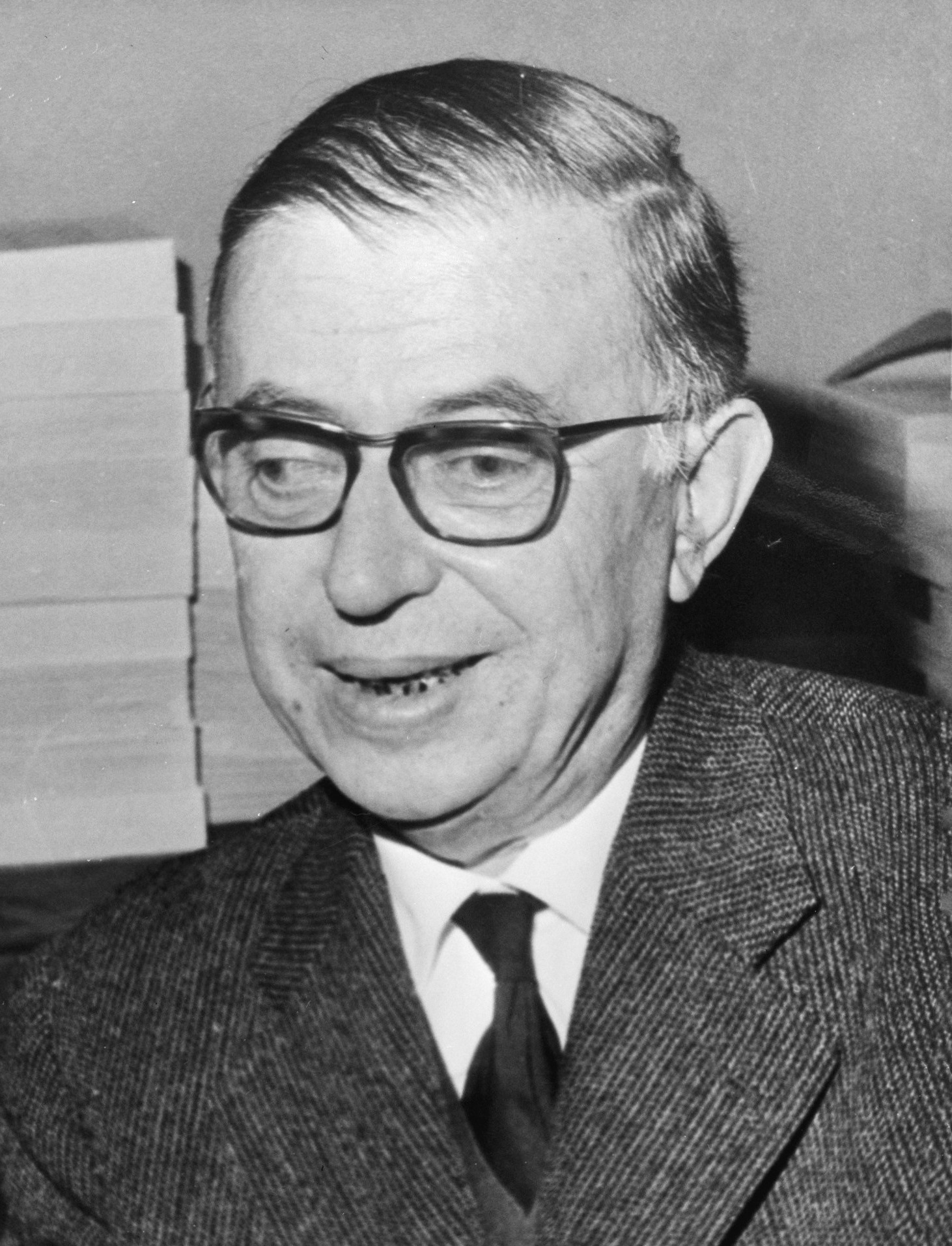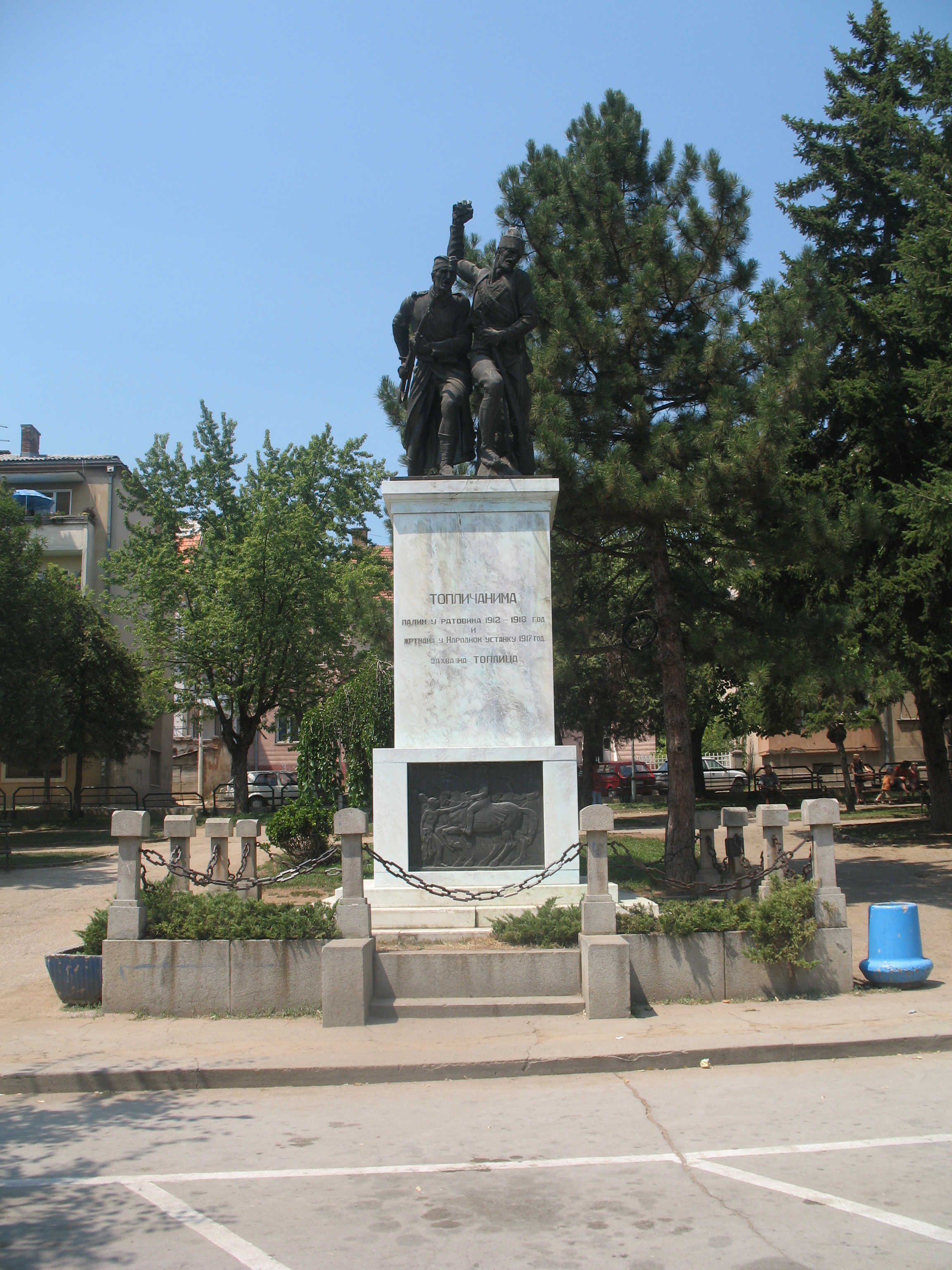|
Dragoljub Mićunović
Dragoljub Mićunović ( sr-Cyrl, Драгољуб Мићуновић ; born 14 July 1930) is a Serbian politician and philosopher. As one of the founders of the Democratic Party, he served as its leader from 1990 to 1994, and as the president of the parliament of Serbia and Montenegro from 2000 to 2004. Early life Mićunović was born on 14 July 1930 in Merdare, Kingdom of Yugoslavia. He spent his childhood in Skopje where his father Mile worked as a civil servant. Following the annexation of parts of Yugoslavia by the Italian puppet Albanian Kingdom and Axis Kingdom of Bulgaria, he sought refuge in the Territory of the Military Commander in Serbia. After World War II, he resumed high school in Kuršumlija and Prokuplje. Mićunović was then sentenced to 20 months of forced labour at Goli Otok island by the Yugoslav authorities for ideological inclinations towards the Soviet Union. After his release, he became an assistant at the University of Belgrade Faculty of Philosoph ... [...More Info...] [...Related Items...] OR: [Wikipedia] [Google] [Baidu] |
Democratic Centre (Serbia)
Democratic Centre (, abbr. DC) was a political party in Serbia. It was founded in 1996 by Dragoljub Mićunović, the former president of the Democratic Party (DS), when he left the DS. At the 2003 Serbian parliamentary election Parliamentary elections were held in Serbia on 28 December 2003 to elect members of the National Assembly of Serbia, National Assembly. Serbia had been in a state of political crisis since the overthrow of the post-communist ruler, Slobodan Milo ..., the party won 5 seats on the list of the DS. After the elections, it merged into the DS in 2004. References 1996 establishments in Serbia Defunct political parties in Serbia Centrist parties in Serbia Democratic Party (Serbia) breakaway groups Political parties established in 1996 Political parties with year of disestablishment missing {{Serbia-party-stub ... [...More Info...] [...Related Items...] OR: [Wikipedia] [Google] [Baidu] |
Albanian Kingdom (1939–43)
Kingdom of Albania may refer to: * Kingdom of Albania (medieval) The Kingdom of Albania (, ) was established by Charles I of Naples, Charles of Anjou in the Albanian territories he conquered from the Byzantine Empire in 1271, with the help of the local Albanian nobility. The Kingdom of Albania was declared in ... * Albanian Kingdom (1928–1939) * Kingdom of Albania in personal union with Italy (1939–1943) * Albanian Kingdom (1943–1944) {{disambiguation ... [...More Info...] [...Related Items...] OR: [Wikipedia] [Google] [Baidu] |
Zagreb
Zagreb ( ) is the capital (political), capital and List of cities and towns in Croatia#List of cities and towns, largest city of Croatia. It is in the Northern Croatia, north of the country, along the Sava river, at the southern slopes of the Medvednica mountain. Zagreb stands near the international border between Croatia and Slovenia at an elevation of approximately above mean sea level, above sea level. At the 2021 census, the city itself had a population of 767,131, while the population of Zagreb metropolitan area is 1,086,528. The oldest settlement in the vicinity of the city was the Roman Andautonia, in today's Šćitarjevo. The historical record of the name "Zagreb" dates from 1134, in reference to the foundation of the settlement at Kaptol, Zagreb, Kaptol in 1094. Zagreb became a free royal city in 1242. In 1851, Janko Kamauf became Zagreb's List of mayors of Zagreb, first mayor. Zagreb has special status as a Administrative divisions of Croatia, Croatian administrative ... [...More Info...] [...Related Items...] OR: [Wikipedia] [Google] [Baidu] |
Serb Democratic Forum
Serb Democratic Forum (, Српски демократски форум) is a non-governmental organization of the Serbs of Croatia, which in cooperation with national and international organizations and institutions, protects human rights, minority rights, develops and promotes inter-ethnic tolerance and understanding and tries to restore mutual trust and respect. Forum is a voluntary, non-governmental, non-profit and non-partisan organization. It is the first Serb non-governmental organization founded in Croatia in the aftermath of the disintegration of Yugoslavia. Forum has won numerous awards for his work in affirmation of human rights and civil society, most notably the Democracy and Civil Society Award in 1998, awarded by the U.S. and EU for promotion of democratic values. Image:Veljko Džakula.jpg, Veljko Džakula Serb Democratic Forum-Youth Forum * Serb Democratic Forum-Youth Forum (Serbo-Croatian) Serbian Democratic Forum-Youth Forum (, sr-cyr, Српски д� ... [...More Info...] [...Related Items...] OR: [Wikipedia] [Google] [Baidu] |
The Founding Committee Of The Democratic Party
The Democratic Party (; , abbr. DS) is a social democratic list of political parties in Serbia, political party in Serbia. Srđan Milivojević has led the party as its Democratic Party (Serbia)#List of presidents, president since 2024. The party is colloquially known as the ''žuti'' (yellows) because of one of its main colours. DS was founded in 1990 by a group of intellectuals who sought to revive the Democratic Party (Yugoslavia), Democratic Party, which was active in the Kingdom of Yugoslavia. Dragoljub Mićunović was the first president of DS until 1994 and under his leadership DS gained representation in the National Assembly of Serbia and took part in anti-government protests against Slobodan Milošević. After Zoran Đinđić's election as president of DS in 1994, DS was reorganised. Đinđić led the party into the Coalition Together, Together coalition, and DS took part in the 1996–1997 protests in Serbia, 1996–1997 protests that occurred after the Electoral Co ... [...More Info...] [...Related Items...] OR: [Wikipedia] [Google] [Baidu] |
Marxist Humanist
Marxist humanism is a philosophical and political movement that interprets Karl Marx's works through a humanist lens, focusing on human nature and the social conditions that best support human flourishing. Marxist humanists argue that Marx himself was concerned with investigating similar questions. Marxist humanism emerged in 1932 with the publication of Marx's '' Economic and Philosophic Manuscripts of 1844'', and reached a degree of prominence in the 1950s and 1960s. Marxist humanists contend that there is continuity between the early philosophical writings of Marx, in which he develops his theory of alienation, and the structural description of capitalist society found in his later works such as ''Capital''. They hold that it is necessary to grasp Marx's philosophical foundations to understand his later works properly. Contrary to the official dialectical materialism of the Soviet Union and to the structural Marxism of Louis Althusser, Marxist humanists argue that Marx's wo ... [...More Info...] [...Related Items...] OR: [Wikipedia] [Google] [Baidu] |
University Of Belgrade Faculty Of Philosophy
The University of Belgrade Faculty of Philosophy (), established in 1838 within the Belgrade Higher School, is the oldest Faculty at the University of Belgrade. The Faculty building is located at the meeting point of the Čika-Ljubina with the Knez Mihailova Street, the main pedestrian and shopping zone in Belgrade, Stari Grad. The Faculty employs 255 teaching staff and enrolls approximately 5000 undergraduate and graduate students within ten departments: Department of Philosophy, Department of Classics, Department of History, Department of Art History, Department of Archaeology, Department of Ethnology and Anthropology, Department of Sociology, Department of Psychology, Department of Andragogy and Department of Pedagogy. Notable alumni * Mira Adanja-Polak, Freelance producer, journalist and presenter * Lidiia Alekseeva, Latvian poet and writer of short stories * Mehdi Bardhi, Founder of the Institute of Albanology in Priština * Alojz Benac, President of the Academy of Sc ... [...More Info...] [...Related Items...] OR: [Wikipedia] [Google] [Baidu] |
Soviet Union
The Union of Soviet Socialist Republics. (USSR), commonly known as the Soviet Union, was a List of former transcontinental countries#Since 1700, transcontinental country that spanned much of Eurasia from 1922 until Dissolution of the Soviet Union, it dissolved in 1991. During its existence, it was the list of countries and dependencies by area, largest country by area, extending across Time in Russia, eleven time zones and sharing Geography of the Soviet Union#Borders and neighbors, borders with twelve countries, and the List of countries and dependencies by population, third-most populous country. An overall successor to the Russian Empire, it was nominally organized as a federal union of Republics of the Soviet Union, national republics, the largest and most populous of which was the Russian SFSR. In practice, Government of the Soviet Union, its government and Economy of the Soviet Union, economy were Soviet-type economic planning, highly centralized. As a one-party state go ... [...More Info...] [...Related Items...] OR: [Wikipedia] [Google] [Baidu] |
Prokuplje
Prokuplje ( sr-Cyrl, Прокупље, ) is a city and the administrative center of the Toplica District in southern Serbia. As of 2022 census, the municipality has a population of 38,054 inhabitants. Prokuplje is one of the Roman sites of Serbia. When South Serbs first settled in this area in the 6th century, the city was known as ''Komplos''. The town was known as Ürgüp during Ottoman rule. After Serbia's victory over the Ottomans, Prokuplje was incorporated into the Kingdom of Serbia in 1878. Geography The Toplica district is located in southern Serbia, in the central part of the Balkan peninsula. Prokuplje is located between municipalities of Blace, Kuršumlija, Bojnik, Žitorađa, Merošina, Aleksinac, and Kruševac. Climate Prokuplje has a humid continental climate (Köppen climate classification: ''Dfa''). History and archaeology Neolithic and Copper Age The traces of early settlements can be found at Neolithic sites such as Macina (near Zitni Potok), Kavol ... [...More Info...] [...Related Items...] OR: [Wikipedia] [Google] [Baidu] |




